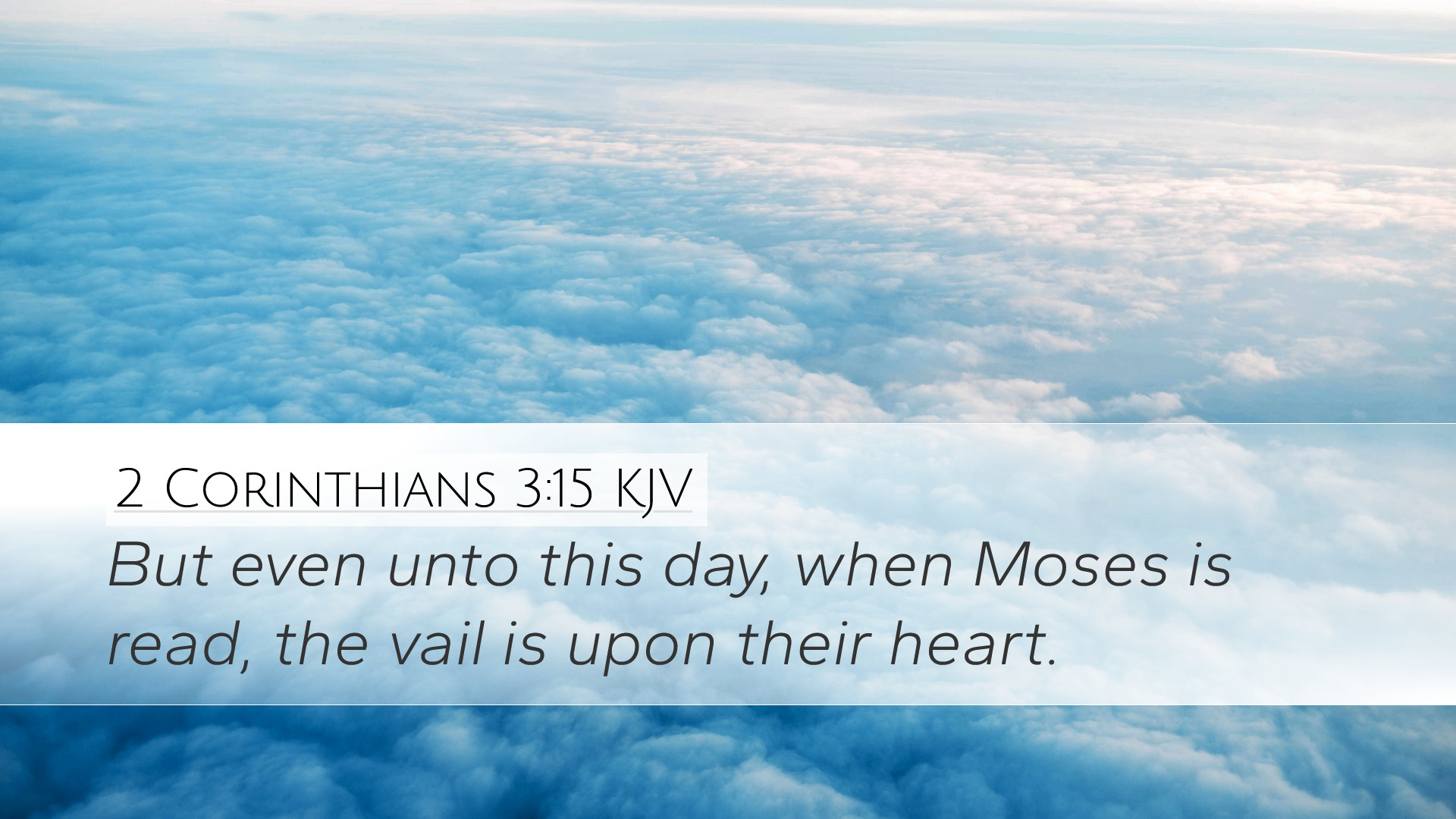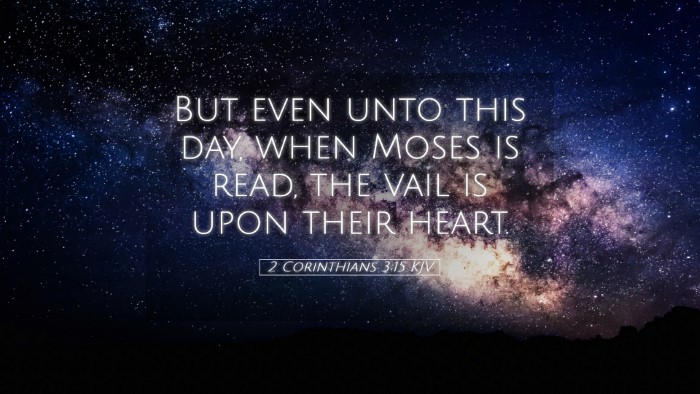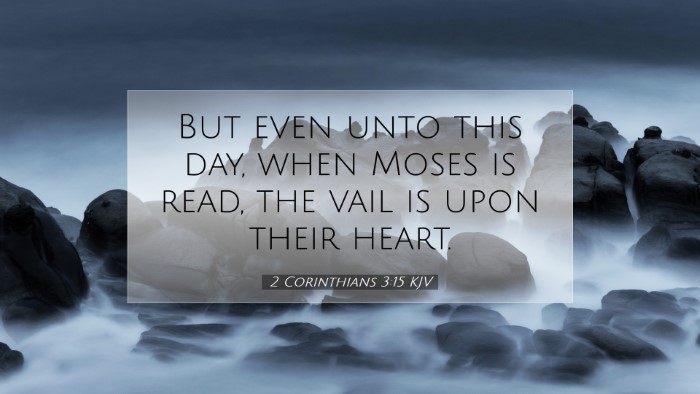Commentary on 2 Corinthians 3:15
Verse: “But even unto this day, when Moses is read, the veil is upon their heart.”
Contextual Overview
This verse is a part of the Apostle Paul's discourse on the distinction between the old covenant, represented by Moses, and the new covenant brought through Christ. The context finds Paul elaborating on the glories of the new covenant and how it surpasses the old in terms of spiritual revelation and transformation.
Exegesis and Commentary
This verse, 2 Corinthians 3:15, highlights the spiritual blindness that exists in the hearts of many Jewish listeners during Paul's time. The veil that lies upon their hearts signifies a lack of understanding and acceptance of the truth presented through Christ.
Matthew Henry's Insights
Spiritual Blindness: Matthew Henry notes that the veil that covers the hearts of the Israelites prevents them from perceiving the glory of God, which is made manifest in the face of Jesus Christ. He emphasizes that the reading of the Law, without the illumination of the Holy Spirit, leads to an incomplete understanding of God’s ultimate plan.
Albert Barnes's Observations
Jewish Rejection: Albert Barnes comments on the continued reading of the Law and how it perpetuates spiritual darkness among those who do not recognize the Messiah. He points out that the veil represents their hardened hearts, which remain unyielding to the revelation of God's grace through Jesus. Barnes underscores the tragic irony that while the Law was intended to lead them to Christ, it has, in many cases, obscured their vision.
Adam Clarke's Analysis
Veil as a Metaphor: Adam Clarke elaborates on the metaphor of the veil, likening it to covering that obscures the truth. He insists that this veil is not merely societal or cultural but is deeply embedded in the spiritual understanding of individuals. Clarke emphasizes that when someone turns to the Lord—acknowledging Jesus as the Messiah—the veil is lifted, allowing for clarity and comprehension of divine truths.
Theological Implications
The implications of this verse are profound for theology. It raises questions about revelation, the state of the human heart, and the need for divine intervention to gain spiritual insight. The quote serves as a reminder of the necessity of Christ for true understanding.
Spiritual Transformation
This transformation is not merely intellectual but a heart change that impacts every facet of life. The lifting of the veil points towards a personal, transformative encounter with Christ that each believer can experience.
The Role of the Holy Spirit
Additionally, the reference to the veil suggests an important role for the Holy Spirit. As believers are filled with the Spirit, their eyes are opened to the mysteries of God found within Scripture, moving beyond the limitations of the old covenant.
Application for Pastors and Theologians
For pastors, understanding this verse encourages a compassionate approach towards those struggling with spiritual blindness. Preaching should aim to unveil the truth of the Gospel, illuminating the path to Christ. For theologians, this verse invites a deeper exploration of the continuity and discontinuity between the old and new covenants.
Encouragement for Ministry
- Highlighting Christ: Every sermon should ultimately point to Christ, fostering knowledge and understanding of His role in fulfilling the Law.
- Empowering Believers: Equip the congregation to rely on the Holy Spirit for understanding and interpreting Scripture, ensuring they recognize the importance of spiritual insight.
- Addressing Spiritual Blindness: Be sensitive to the fact that many may come with a veil over their hearts, and approach them with love and patience, encouraging them to seek the truth in Christ.
Conclusion
2 Corinthians 3:15 serves as a poignant reminder of the spiritual realities that govern understanding God's Word. The commentary from the noted scholars provides rich insights that underscore the need for a transformative relationship with Jesus Christ to penetrate the veil and experience the fullness of God's revelation.


